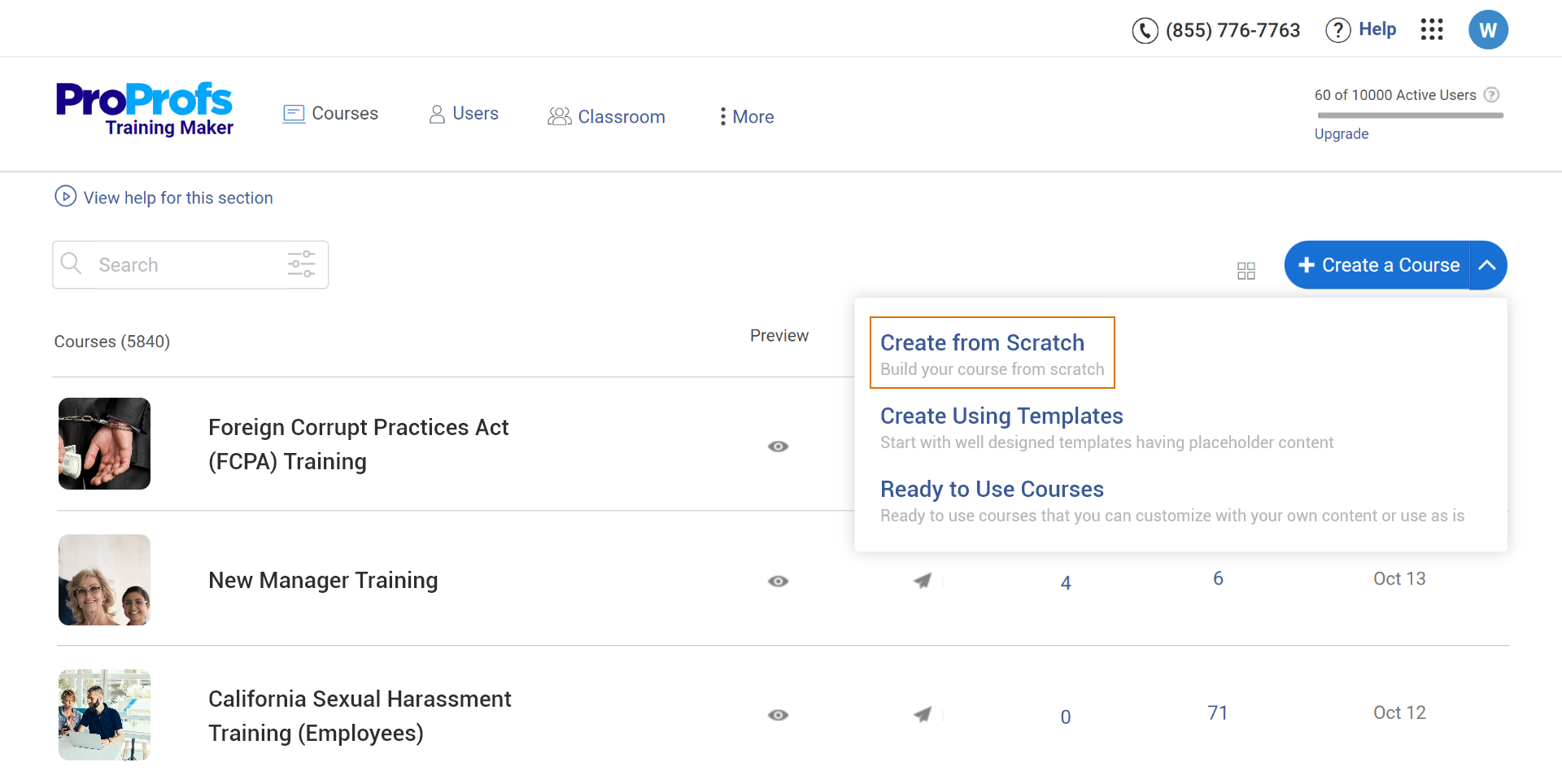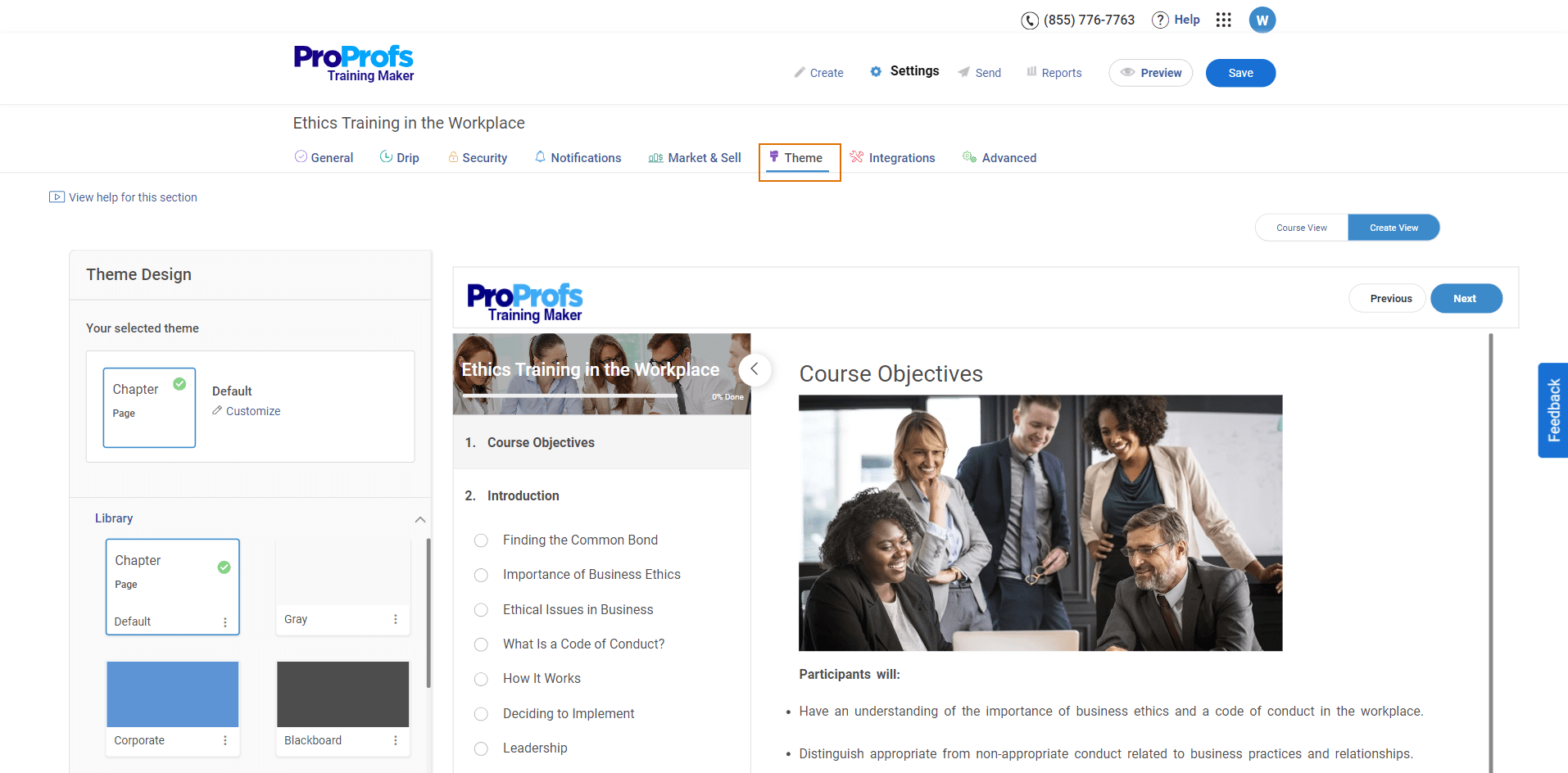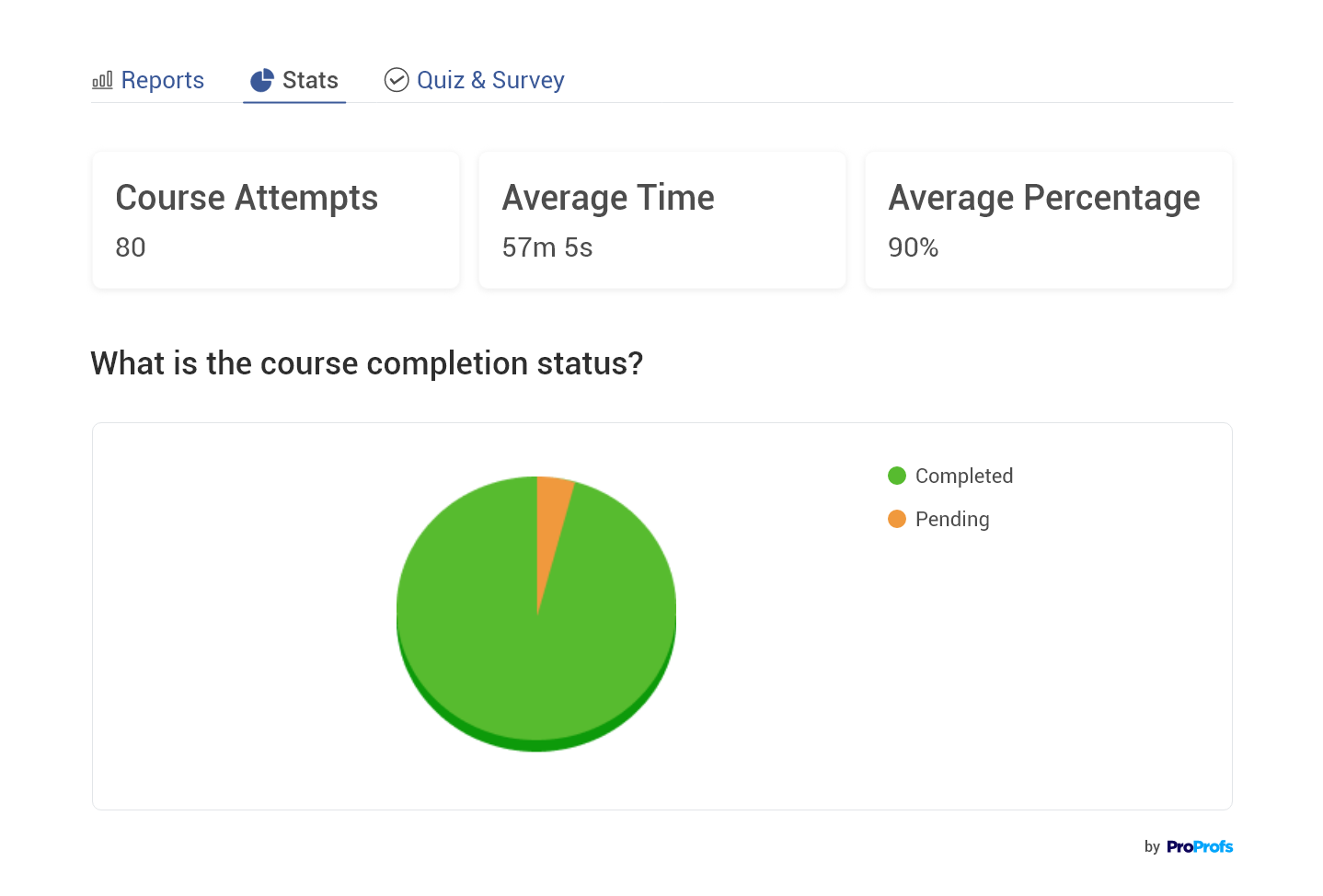
There may have been times when you felt that ethics training for employees is not that essential and it does not affect the bottom line.
But let me tell you – it does!
Just a few days back, the employees of Wells Fargo (the 4th largest bank in the U.S.) created fake accounts for customers without their consent. This unethical behavior harmed customers, investors, and the public trust. It also cost the company $3 billion in fines.
Considering the gravity of such issues, in this blog post, I will be highlighting the importance of ethics training programs, the best workplace ethics training courses, and ways to create and implement ethics training.
What Is Ethics Training for Employees?
Ethics training for employees is a program designed to educate employees about ethical behavior in the workplace.
It covers topics like code of conduct, honesty, integrity, and respect while also addressing legal requirements and conflicts of interest.
The training aims to promote ethical decision-making and create a culture of integrity within the organization by understanding right from wrong.
It helps employees understand their responsibilities and make ethical choices when faced with dilemmas.
6 Best Ethics Training Courses for Employees
This list of the top online ethics training for employees will help you build a strong work culture.
It took me some time to create this list because I trained my employees on these courses and also gathered feedback to ensure their effectiveness.
I hope (rather I am sure) that you will find this helpful, too.
1. Introduction to Workplace Ethics Training
I highly recommend this course to kickstart your ethics training program, as it covers the fundamentals of ethical behavior in the workplace. It emphasizes the importance of ethical standards, code of conduct, and how they contribute to building an ethical workplace.
The course also explores the role of ethics in creating a positive work environment by promoting cooperation, trust, and employee happiness.
With engaging content and expert instruction from James Galluzzo, this course is perfect for new leaders and supervisors looking to establish an ethical framework within their organizations.
James Galluzzo is a principal consultant of HRJ Strategies. He brings over 25 years of human resources and leadership development experience, honed through diverse roles including HR expert for the U.S. Army.
An accomplished author and certified Senior Professional in Human Resources, James instructs with a focus on instilling ethical workplace values and aiding new leaders and supervisors in organizational change.
2. Considerations for Handling Ethical Challenges
It’s not uncommon to encounter ethical challenges in the workplace today.
Some commonly faced issues include conflicts of interest, corruption, diversity and inclusion, and legal considerations related to ethical frameworks.
If you’re struggling with these ethical challenges, there’s a course that can help – Considerations for Handling Ethical Challenges.
This course discusses various considerations necessary for handling ethical challenges at work, including the relevant laws, regulations, and standards to build a legal framework for your organization.
It also includes case studies, role-playing scenarios, and assessments that you can use to test your knowledge. With this course, your employees will learn how to make wise ethical decisions and how to ensure that your workplace maintains an ethical culture.
It’s especially useful for new leaders, supervisors, and anyone leading a change process within their organization.
3. Drug-Free Workplace Training
Addiction costs American businesses and organizations an average of $81 billion in lost profits every year.
However, businesses that have instituted drug-free workplace programs have seen a 51% decrease in workplace injury rates.
Drug use can give rise to violence and theft in the workplace by lowering inhibitions, impairing judgment, increasing aggression, and creating desperation. Drug users may also steal to fund their habits or commit crimes while under the influence.
If you want to create a drug-free workplace, you can try out this employee ethics training topic.
This Drug-Free Workplace Training Course is a fantastic resource for promoting a healthy and productive work environment. The course addresses key aspects such as components of a drug-free workplace, drug testing systems, employee assistance programs, and best practices for legal compliance.
With a variety of learning materials like flashcards, worksheets, scenarios, assessments, and additional resources, the course is comprehensive.
James Galluzzo, an experienced HR professional with over 25 years of expertise, is the course instructor. The course is particularly valuable for new employees and managers seeking to mitigate risks within their organizations, serving as a thorough guide to establishing a robust, drug-free workplace.
4. How to Build an Ethical Work Culture
In today’s dynamic business landscape, fostering an ethical work culture is no longer a luxury but a necessity.
The Ethical Work Culture Training Course is expertly crafted to guide you in building and sustaining an ethical workplace rooted in strong corporate values and trust.
This comprehensive course delves into the importance of fairness, equity, and honesty in workplace interactions. It emphasizes individual responsibility in upholding ethical standards and explores the transition from personal ethics to collective organizational ethics.
Led by seasoned HR professional James Galluzzo, this course is particularly valuable for aspiring leaders and supervisors navigating change within their organizations. It equips them with the knowledge and tools to establish a robust ethical framework for their teams.
Originally a part of the broader Ethics Training in the Workplace course, this mini-course provides a concise yet insightful introduction to ethical workplace practices.
5. Core Leadership Skills
Why should you include leadership skills in your ethics training?
This is one of the most common questions that I get.
Learning how to be a good leader is a big part of ethics training. Being an ethical leader means caring about values like honesty, fairness, and respect.
Ethical leaders embody a unique blend of personal qualities that shape their fair decision-making and interactions with others.
This comprehensive course dissects the four elements of effective leadership:
- Emotional intelligence to foster a harmonious and productive work environment.
- Effective communication skills to maintain an open and honest dialogue that builds trust and collaboration.
- Vision & planning to guide your team toward achieving organizational goals.
- Ethical leadership to ensure that your decisions align with the company’s values and the greater cause.
Taught by seasoned HR professional James Galluzzo, this course provides a wealth of insights and practical tools to help you become an exceptional leader. With over 25 years of experience, James has guided countless individuals and organizations toward achieving their goals.
ProProfs also provides other leadership training courses. You may also refer to them based on your training needs.

6. Diversity, Equity, and Inclusion (DEI) Training
Many companies know it’s important to have a diverse group of people working together. They see it as both the right thing to do and a way to make their business better.
Most importantly, DEI training is an essential component of an organization’s ethical responsibilities because it promotes respect, inclusion, and fairness for all employees. Such training also benefits the organization by enhancing creativity, innovation, and productivity.
U.S. firms alone spend billions of dollars every year to educate their employees about DEI.
That’s why I highly recommend the Diversity, Equity & Inclusion Training course for its valuable insights into fostering a diverse and inclusive workplace.
You will learn about four key topics in this course:
- Diversity: What it means, why it matters, and how to celebrate it
- Equity: How to ensure fair and equal opportunities for all employees
- Inclusion: How to foster a sense of belonging and collaboration among diverse teams
- DEI in Action: How to apply the principles of diversity, equity, and inclusion in your daily work
Your instructor for this course is Amber Rose, a seasoned program manager and coordinator. She brings a wealth of experience in leading and supporting diverse teams in various sectors, such as non-profit and retail.
By the end of this course, you will have a better understanding of the core concepts of diversity, equity, and inclusion, the benefits they bring to organizations, the common challenges you may face, and the best practices to overcome them. You will also have access to worksheets and quizzes to test knowledge and skills.
Why Ethics Training is Important for Employees
Ethics training is important for employees because such training fosters a positive and productive work environment. It provides employees with the knowledge and skills they need to make sound ethical decisions in the workplace.

By understanding and adhering to ethical principles, employees can help prevent wrongdoing, protect the company’s reputation, and maintain the trust of stakeholders.
Here are some of the key reasons why ethics training is important for employees:
1. Promotes Ethical Decision-Making
Ethics training helps employees to develop the critical thinking skills they need to identify and analyze ethical dilemmas.
It also provides them with a framework for making decisions that are consistent with the company’s values and ethical standards.
2. Prevents Wrongdoing
You can prevent unethical behavior in the workplace by raising awareness of the potential consequences of such behavior.
It also teaches employees how to report misconduct and how to protect themselves from being involved in wrongdoing.
3. Protects Company’s Reputation
A strong ethical culture can protect a company’s reputation from being tarnished by unethical behavior.
When employees are well-versed in ethics, they are less likely to make decisions that could damage the company’s image or lead to legal or financial problems.
4. Maintains the Trust of Stakeholders
Training in ethics plays a crucial role in upholding the trust of various stakeholders, including customers, investors, and employees.
When these stakeholders perceive a firm’s dedication to ethical conduct, they are more likely to do business with the company and support its initiatives.
6. Creates a Positive Work Environment
A strong ethical culture can contribute to a positive and productive work environment.
When employees feel confident that the company is acting ethically, they are more likely to be engaged and motivated in their work.
In addition to these benefits, ethics training for employees can help to improve employee morale and productivity and attract and retain top talent.
Ethics training should be an ongoing process, not a one-time event. You should provide regular ethics training to all employees, regardless of their position or level of experience.
This will help ensure that your employees are always up-to-date on the company’s ethical standards and that they have the skills they need to make ethical decisions in the workplace.
Before we move to the next section, let me share the story of one of our employees.
John is a sales representative who joined our organization six months ago. He received ethics training as a part of his orientation program, where he learned about our code of conduct, our policies and procedures, and our expectations for ethical behavior.
One day, he received a call from a potential customer who expressed interest in buying our products. John was excited and eager to close the deal, but he soon realized that the customer was asking for a discount that was beyond his authority.
The customer also hinted that he would be willing to pay a commission if he could get the discount.
John felt tempted to accept the offer, as he wanted to boost his sales performance and earn some extra money.
However, he remembered the workplace ethics training he had received and the values of our organization. He knew that accepting the offer would be unethical and illegal and that it would violate our code of conduct.
So, he decided to decline the offer and explain to the customer that he could not give him the discount or accept the commission. He also reported the incident to his supervisor, who praised him for his ethical decision.
As you can see, if you train your workforce, they can make ethically sound decisions and act in accordance with your organization’s values and standards.
How to Create an Ethics Training Program
If you want to create an engaging ethics training program, I would suggest you choose a tool like ProProfs Training Maker. It is one of the best learning management systems (LMS) to create, manage, and deliver your course.
So, let’s start.
Step 1: Create an account with ProProfs Training Maker. Once you have created an account, you will be redirected to your ProProfs Training Maker dashboard.

Step 2: Start with a template or create your own course. You can either choose from a variety of pre-built templates and courses or start from scratch to create your training program. Make sure you choose the right ethics training courses based on your needs.

Watch: How to Create an Online Course from Scratch?
Step 3: Make your course engaging. Add multimedia to cater to various learning needs.
This could include text, images, quizzes, audio, videos, documents, presentations, surveys, flashcards, etc.

Watch: How to Add Media to Your Online Courses?
Step 4: Personalize your course. Make your course stand out by customizing the course cover, including the title, subtitle, short description, and button text.
You can also add your own logo and choose a theme and colors that align with your brand.

Watch: How to Design Online Training Courses Effortlessly?
Step 5: Share the course. Once your course is ready, share it with your learners.

You can send course invites via email, social media, SMS, QR code, or embed the link on your website.
Watch: How to Share Your Courses With Learners?
Step 5: Monitor the progress of your learners in real-time. This will help you understand how well they are grasping the material and where improvements may be needed.

ProProfs Training Maker enables you to generate and view user and group reports. You can view who took your courses, completed and pending courses, time spent on each course, etc.
Watch: How to Analyze Training Course & Quiz Results?
Ways to Implement Ethics Training in the Workplace
There are many ways to implement an ethics training program in the workplace, depending on your organization’s goals, culture, and resources.
Here are some commonly used methods with their pros and cons.
-
E-Learning
This is a method where you use an online platform to deliver workplace ethics training topics to your employees. For this, you can use either pre-designed courses and modules or create your own customized content.
This method can be very convenient, flexible, and cost-effective, as it allows your employees to access the training anytime, anywhere, at their own pace.
However, this method can be very impersonal, and you need to have reliable technology.
-
Face-to-Face Workshops
This is a traditional way of providing workplace ethics training, where you gather your employees in a classroom or a conference room and deliver a presentation or a lecture on ethical principles and scenarios.
This method is effective in engaging your employees in discussions and debates and addressing real-life examples that are relevant to your organization.
However, this method can be very costly, time-consuming, and difficult to schedule, especially if you have a large or dispersed workforce. You also need to have experienced trainers to deliver such content.
-
Hypothetical Scenarios
In this, you create a simulated situation that involves an ethical dilemma and ask your employees to respond to it. You can either do this in a group setting or individually.
This method is useful in testing your employees’ ethical judgment, providing feedback and coaching, and identifying areas for improvement.
However, this method can also be very risky, as it can damage your employees’ trust, morale, and motivation if they feel deceived or embarrassed by their choices. Also, avoid creating situations that are too unrealistic or extreme.
-
Real-Life Situations
This is a method where you use actual ethical dilemmas that your employees often face in the workplace as opportunities for learning and improvement.
Either let your employees handle the situations on their own or provide them with guidance and support from mentors, managers, or peers.
This method can be beneficial in applying ethics to real-world situations, reinforcing ethical values and behaviors, and creating a culture of ethical awareness and accountability.
However, this method is challenging as it can expose your employees to various risks like legal and reputational risks. On top of that, it may also create conflicts among stakeholders, requiring your constant monitoring and evaluation.
-
Simulations
Through this method, you can use computer-based or virtual reality systems to create realistic and immersive environments that simulate ethical situations and challenges.
It’s engaging, fun, and impactful, as it can provide your employees with a safe and controlled space to practice and experiment with ethical decision-making and experience the consequences and outcomes of their actions.
The drawback is that simulations can be expensive, complex, and time-consuming, as they require advanced and specialized technology, equipment, and expertise.
-
Role-Plays
This is another way to implement your ethics training program.
Ask your employees to act out or perform ethical situations and dilemmas, either in pairs or groups. Provide your employees with roles, objectives, and guidelines. Use observers, facilitators, or evaluators to monitor and assess the role-plays and provide feedback and debriefing.
This method can be interactive, dynamic, and experiential, as it can help your employees develop their ethical skills. Plus, you can explore different perspectives, opinions, and solutions to create a collaborative learning environment.
However, this method can be stressful, uncomfortable, and intimidating, as it can put your employees on the spot, expose their weaknesses or biases, and create conflicts or tensions.
Apart from the above, you can use other methods, such as games, podcasts, webinars, mentoring, coaching, etc., or combine different methods to create a blended or hybrid approach.
The best method for your organization depends on various factors, such as your objectives, audience, budget, and time.
Build a Culture of Integrity With Ethics Training
Ethics training for employees helps promote ethical behavior, prevent wrongdoing, protect the company’s reputation, and maintain the trust of stakeholders.
There are many ways to implement an ethics training program for employees in the workplace, and the best method will depend on your objectives, audience, budget, and time.
Here are some of the key takeaways from this blog:
- Workplace ethics training is important because it helps employees make sound ethical decisions in the workplace
- A strong ethical culture can protect the company’s reputation from being tarnished by unethical behavior
- The training can be a long-term solution for preventing wrongdoing
- Ethics training should be an ongoing process, not a one-time event
By investing in ethics training, you can create a more ethical and successful organization.
Frequently Asked Questions
What makes ethics training programs effective?
Ethics training programs are most effective when they are relevant to the workplace, engaging and interactive, ongoing, and reinforced by leadership
What should ethics training programs include?
Ethics training programs should cover a wide range of topics, including the company’s code of conduct, legal requirements, conflicts of interest, and ethical decision-making.
How often should employees participate in ethics training?
Employees should participate in ethics training at least once a year. However, more frequent training may be necessary for employees who are in high-risk positions or who are new to the organization.
FREE. All Features. FOREVER!
Try our Forever FREE account with all premium features!







